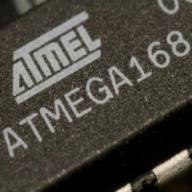Chem normal salt pH must =7 ?
2014-08-21 1:01 am
1.all normal salt must have pH of 7 ?
回答 (2)
2014-08-21 6:08 am
✔ 最佳答案
The pH of the aqueous solution of a normal salt may be equal to 7,greater than 7 or smaller than 7.Case 1 : pH < 7
If the cation of a solution reacts to give hydrogen ions,the solution will become acidic and thus pH < 7.
For example, consider the aqueous solution of ammonium chloride :
In aqueous solution, ammonium chloride dissociates to give ammonium ions and chlorideions. Chloride ions do not react with water, but ammonium ions hydrolyzes togive ammonia molecules and hydrogen ions.
NH4⁺(aq) ⇌ NH3(aq) + H⁺(aq)
Due to the formation of hydrogen ions, the solution becomes acidic and thus pH< 7.
Case 2 : pH > 7
If the anion of a solution reacts to give hydroxide ions, the solution will becomealkaline and thus pH > 7.
For example, consider the aqueous solution of sodium carbonate :
In aqueous solution, sodium carbonate dissociates to give sodium ions and carbonateions. Sodium ions do not react with water, but carbonate ions hydrolyzes togive hydrogencarbonate ions and hydroxide ions.
CO3²⁻ (aq) + H2O(l) ⇌ HCO3⁻(aq) + OH⁻(aq)
Due to the formation of hydroxide ions, the solution becomes alkaline and thuspH > 7.
Case 3 : pH = 7
If both the cation and anion of a solution do not react in water, the solution willbe neutral and thus pH = 7.
For example, consider the aqueous solution of sodium chloride :
In aqueous solution, sodium chloride dissociates to give sodium ions and chloride ions. Both sodium ions and chloride ionsdo not react with water, and thus the solution is neutral and pH = 7.
參考: 賣女孩的火柴
2014-08-21 3:09 am
Na2CO3 is a normal salt.
Its' solution has pH > 7.
Due to hydrolysis of its anion.
Its' solution has pH > 7.
Due to hydrolysis of its anion.
收錄日期: 2021-04-15 16:14:28
原文連結 [永久失效]:
https://hk.answers.yahoo.com/question/index?qid=20140820000051KK00120

